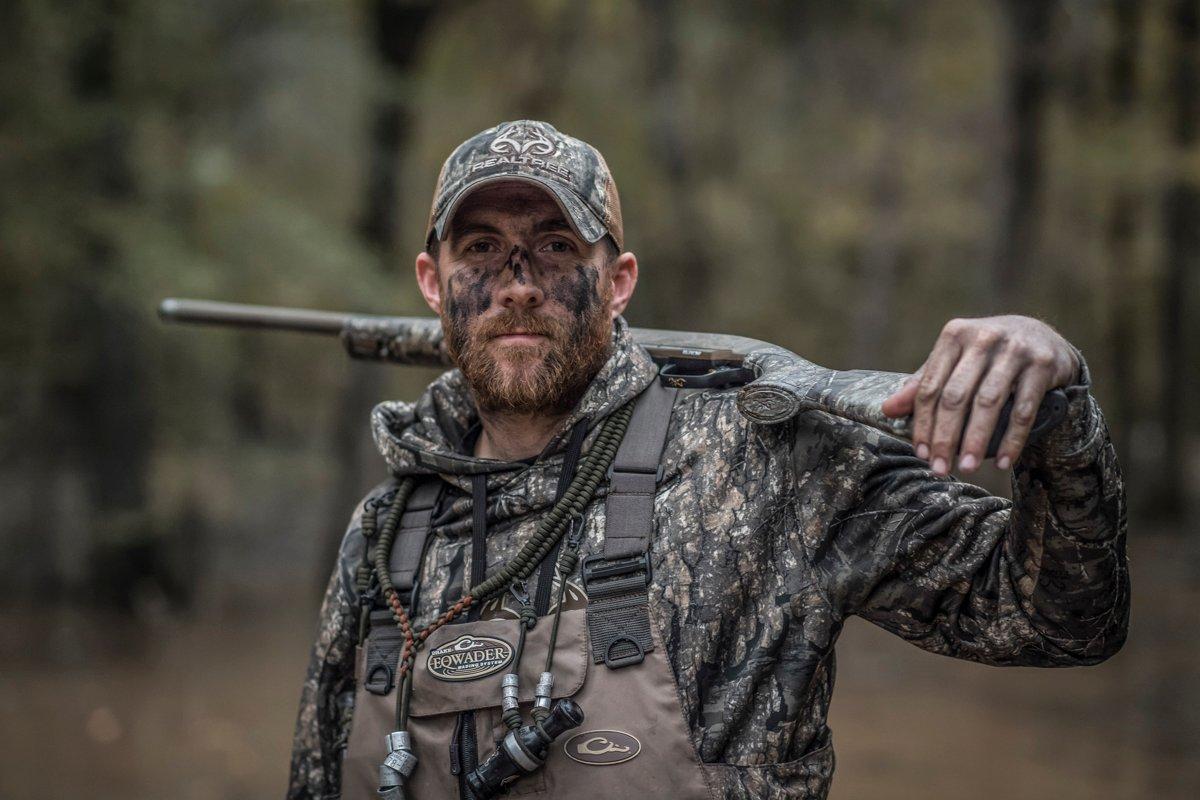These attributes put birds in the boat and on the strap
Editor's note: This blog originally appeared May 3, 2016, on Realtree.com.
You probably have a buddy or know a guy who seems infallible.
He usually returns to the landing with a boat full of birds, and he seems to have the answer to every curveball Mother Nature throws his way. Basically, he's a darn good duck and goose hunter.
Still, you sometimes wonder what makes him special. You might use the same decoys, boat and gun as your friend, and your dogs seem fairly similar. Yet while you stumble and fail at times, he never seems to falter.
Your buddy probably has several critical traits that lift him above rank-and-file waterfowlers. In fact, most successful hunters — whether they're field shooters, decoy nuts, open-water guys or flooded timber specialists — share these attributes. Let's look at some common characteristics of skilled duck and goose guys.
Knowledge, Experience
Good hunters know their quarry. They understand how ducks and geese react to hunting pressure and various weather conditions. They've learned where to set up for success and how to conceal themselves from birds. This knowledge wasn't free, as these folks paid for it with endless study and time in the marsh.
Gear Ready
Successful hunters don't have to be gear nuts with all the latest doo-dads, but they must have the tools for success in several situations, including skiffs, boats, motors, trailers, water decoys, field decoys and field blinds. Further, they must know how to use these tools, whether that means push-poling a skiff through a rice marsh or easing a 20-foot boat next to layout boat to pick up another hunter.
Calling Savvy
No, you don't have to be a state calling champion to bring birds to your spread. You must, however, know what real ducks and geese sound like and be able to imitate those vocalizations at the right time, whether it's a hail call to get the attention of high-flying birds or a subtle feeding chuckle to finish ducks in your pothole. Buy a good instructional video, watch it often and blow your calls while you do. Also, get out in the marsh during spring or just before the season and listen to real birds.
Makin' Bacon
Good duck and goose hunters can handle their shotguns, whether on hard-crossing bluebills or high overhead honkers. They know when to call the shot, how to make the most of big flocks and how to take birds without goofing up their partners. Again, this is no accident. Most good wing-shooters have paid many dues on the skeet, trap or sporting clays range.
Good Dogs
You cannot maximize duck and goose hunting efficiency if your dog yips at birds overhead, breaks at every shot and fails to mark easy open-water retrieves. I'm not saying you need a hunt-test or field-trial champion, though that never hurts. If nothing else, good waterfowlers have a bond with and control over their canine partners. They only accomplish this through hours of training, scores of dummies and piles of live birds, but it's time well spent.
Adaptability
This might be the most important skill good hunters share. Typically, they're not rigid specialists. They might skiff-hunt a small marsh one day, jump-shoot a creek the next, field-hunt for honkers that night and then ply open water for divers later that week. Moreover, they don't get locked into preconceived notions, and they're not wimps. If they need to hunker down in a prairie pasture, no problem. Breaking ice at a boat landing? Part of doing business, even if they must replace a trailer light. They adapt easily to every situation — and usually reap full straps by doing so.
Mirror Check
You likely have several of these characteristics, but I'm guessing you — like me — can probably improve in some areas. There's no shame in that. Identifying your relative weaknesses is the first and most important step toward improving. That will only result in more enjoyable days afield.
Click here for more Realtree waterfowl hunting content. And check us out on Facebook.







